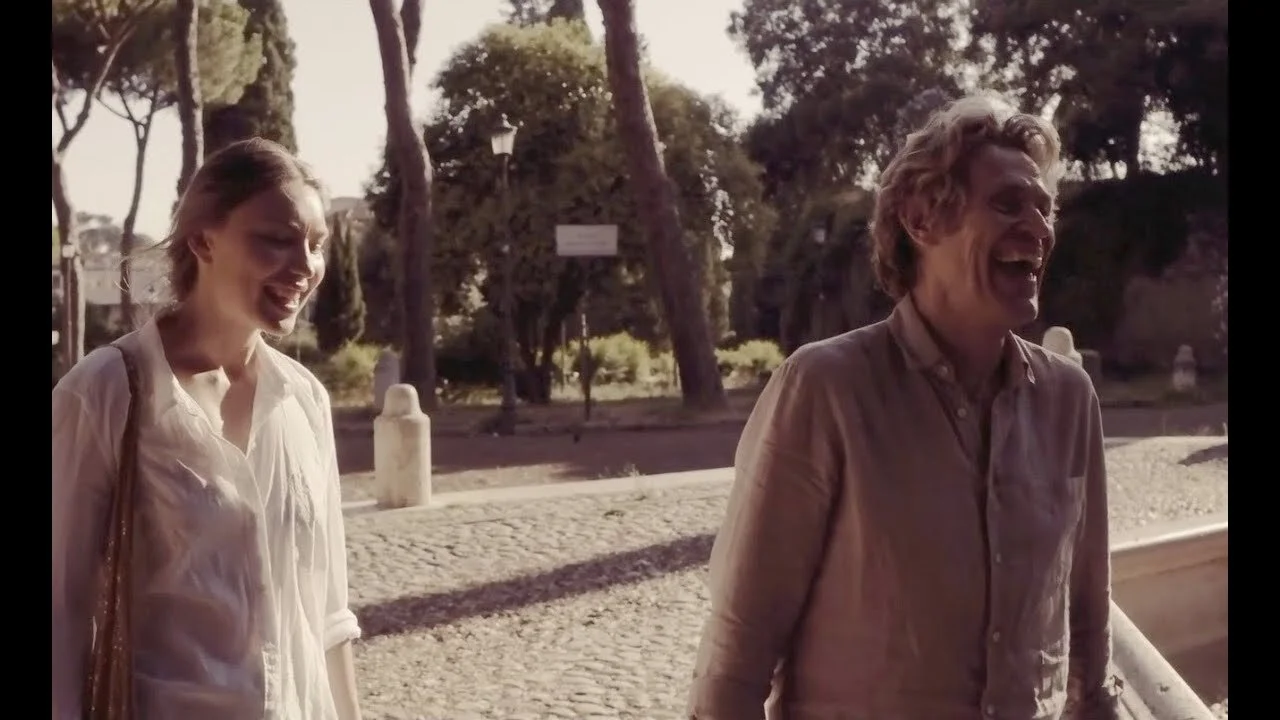Review: Tommaso
When it comes to the true American independents, Abel Ferrara is the real deal. Working outside the mainstream he’s maintained one of the strongest and singular voices in modern cinema, whose insightful and unflinching vision has elevated every genre he’s courted. Going as far back as his debut feature The Driller Killer (a sweaty, revisionist slasher) to his emotionally wrought and dynamic end-of-days drama 4:44 Last Days on Earth is as socially charged as it is personal. Ferrera passionately returns to matters of gender politics, catholicism, fatalism, attachment, addiction, recovery, Italian american culture, crime, the fraught relationship between artists and their art, and the hallowed ground of his native New York City.
Tomasso is another illuminating extension of his work, continuing his fruitful collaboration with Willem Dafoe. Developing a more raw, personally revealing construct, Ferrera’s cinema is transmitting a distinct maturation without losing his confrontational eagerness/curiosity. Ferrera transplants us from the bustling streets of New York to the sunny autumnal arena of present day Rome (another city of cultural, and spiritual significance to the director) where American expat Tommaso and his eastern European wife Nikki (played by Ferrera’s wife Christina Chriac) are raising their baby daughter, Dee Dee (yes, played by Ferrera’s child Anna).
While their semi-bohemian lifestyle feels comfortable and loving it’s not long before we realize that their relationship is at an impasse, dangling on the precipice of full dissolution. It’s evident that the difference in age is a rift, and their lives as parents have curbed their intimacy and ability to interact. You can see flickers of happiness and their love for their daughter is unquestionable but the happiness they shared is dwindling. When he’s not working on his screenplay, sparring with his wife, or palling around with his cherubic child he’s attending Alcoholics Anonymous or sharing with his AA meetings. There’s a casually hypnotic gait to the conception of Tommaso, while it’s obviously presented as a reflective and meditative film, Ferrera and Dafoe covertly seduce your sense of low-key allure.
It would be a disservice to refer to Ferrera’s direction at this point as having “hooks” or “devices” because he’s capable of striking this harmonious visual style and emotionally driven atmosphere. Tommaso is a bright film, Ferrera and cinematographer Peter Zeitlinger capture a historically lavish city with an eye for rich beams of light and a sagebrush colour palette expounding an earthy modernism. A resounding story beat or character arc arrives in daily activities or exercises, some might seem banal, ordinary; a trip to the coffee shop, doing yoga, or running errands can turn surreal with a Fellini-esque bent. The most illuminating sequences arrive when Tommaso’s sharing at an AA meeting and Willem Dafoe’s meditative intensity communicates some of his most invigorating and captivating performances in recent years. With Abel Ferrera moving closer and closer to an individualistic, meta-laden style, casting his family in such direct roles, and bearing so much of himself in his work it feels as if Willem had been adopted into the Ferrera clan and it seems to enable (or boost) the intimacy and unadorned realization of his character. Willem Dafoe has always been a dynamic screen presence and an immaculate talent but there’s this unprecedented tone he strikes with Ferrera, especially since he’s taken on the more psychologically representative roles in movies like this and 4:44 Last Day on Earth. Dafoe’s unconventional, leathery handsomeness gives us a face we want to study, his longing expressions are ones you want to inventory and recall.
Tommaso indicates an elevation of the already relentlessly inquisitive artistic mind of Abel Ferrera, who after a herculean filmography that hits on a breadth of genres often expanding and elaborating on their themes and tropes. Here, his perceptive gaze is just as curious and alert as anything he’s made. This is a rare case where an artist's maturation isn’t indicative of them repeating themselves, weaning relevance, or “losing touch” but an acceleration of their insight and ambition. Tommaso has the curiosity and intellectual perspicacity of a newly minted auteur honing their vision; of course the films themes of aging, generational disconnect and sobriety resound due to Ferrera’s familiarity and maturity.
Abel Ferrara roared onto the movie scene with a rugged and self styled approach to filmmaking and storytelling with confrontational intelligence and expressive brevity. While the deafening roar of his punk rock pseudo slasher debut hit screens forty years (upon production of Tommaso) he’s still asking questions, whether it's tangible or the intangible. His surrogate is still searching, reconciling both sides of his ideological and artistic and even cosmic existence and, like so many of us, is left wanting. Tommaso will undoubtedly appeal to fans of the director's work and likely turn on newcomers alike. It’s not a requisite to familiarize yourself with his personage and work, but, you’ll be the better for it if you take that deep dive.















